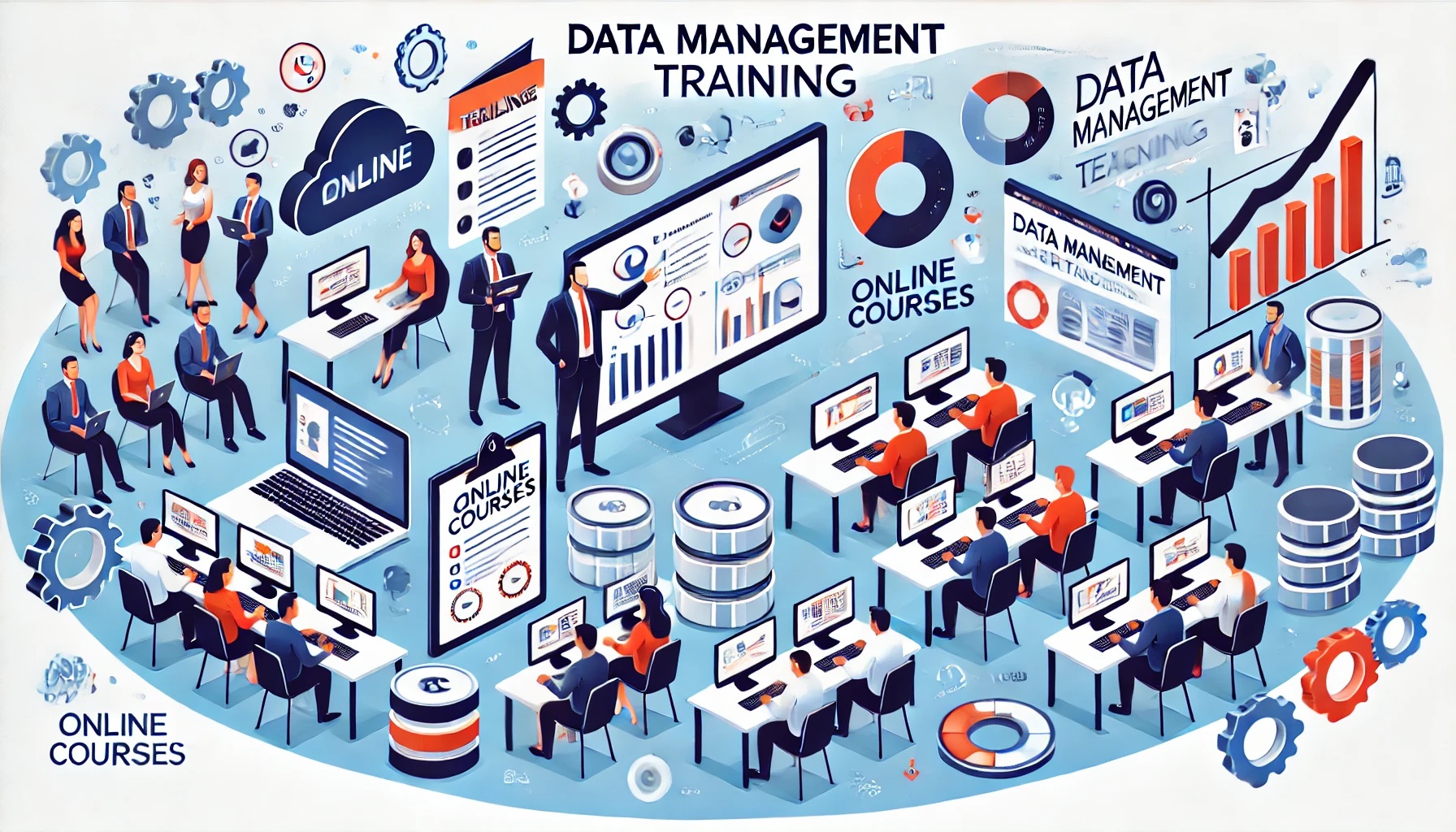Data Management Training
 Our Data Management Training Services are designed to equip agencies with the necessary skills and knowledge to effectively manage data throughout its lifecycle. We cover all aspects of data management, including data collection, data confidentialisation, data visualisation, and data analysis. Our training programs are tailored to meet the diverse needs of different users and delivered through various formats to ensure comprehensive learning and practical application.
Our Data Management Training Services are designed to equip agencies with the necessary skills and knowledge to effectively manage data throughout its lifecycle. We cover all aspects of data management, including data collection, data confidentialisation, data visualisation, and data analysis. Our training programs are tailored to meet the diverse needs of different users and delivered through various formats to ensure comprehensive learning and practical application.
Key Components and Execution
1. Comprehensive Data Management Curriculum
Data Collection: Training on best practices for collecting accurate and reliable data, including techniques for survey design, data entry, and automated data collection tools.
Data Confidentialisation: Ensuring data privacy and security by teaching methods for anonymizing and protecting sensitive information, in compliance with relevant regulations and standards.
Data Visualisation: Techniques for creating effective and insightful visual representations of data using tools like Tableau, Power BI, and other visualization software.
Data Analysis: In-depth training on data analysis methods, including statistical analysis, predictive modeling, and machine learning, to derive actionable insights from data.
2. Training Formats
End User Training: Targeted training sessions for end users focusing on the practical use of data management tools and techniques relevant to their specific roles.
Train the Trainers: Equipping internal trainers with the skills and resources needed to deliver data management training within their own organizations, ensuring sustainable knowledge transfer.
Online Training: Flexible and self-paced online courses that allow participants to learn at their convenience, featuring interactive modules, quizzes, and hands-on exercises.
Webinars: Live, instructor-led webinars that provide opportunities for real-time interaction, questions, and discussions on various data management topics.
Detailed Training Material: Comprehensive training materials, including manuals, guides, and reference documents, that support learning and provide ongoing reference resources for participants.
3. Global Partnerships with Leading Providers
Collaborative Expertise: We partner with leading global providers of data management training and technology solutions. These partnerships ensure that our training programs incorporate the latest industry best practices and technological advancements.
Diverse Perspectives: Leveraging the expertise of our global partners, we bring diverse perspectives and innovative approaches to our training programs, enriching the learning experience for participants.
Access to Advanced Resources: Our partnerships provide access to cutting-edge tools, platforms, and resources, enhancing the quality and effectiveness of our training services.
4. Execution Approach
Needs Assessment: Conducting a thorough assessment of the agency's current data management practices and training needs to tailor the training programs accordingly.
Customized Training Plans: Developing customized training plans that address the specific requirements and goals of the agency, ensuring relevant and practical learning outcomes.
Expert Instructors: Engaging experienced instructors with deep knowledge in data management to deliver high-quality training and provide expert guidance.
Hands-on Learning: Incorporating practical exercises, case studies, and real-world scenarios into the training to enhance understanding and application of data management concepts.
Continuous Support: Providing ongoing support and resources post-training to ensure participants can apply their new skills effectively and continue their learning journey.
5. Evaluation and Feedback
Assessment and Certification: Conducting assessments to evaluate participants' understanding and competence in data management practices, with certification upon successful completion.
Feedback Mechanisms: Implementing feedback mechanisms to gather participant input and continuously improve the training programs.
